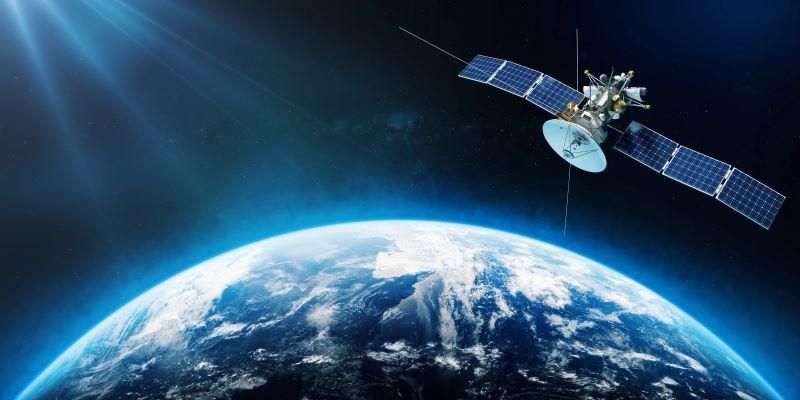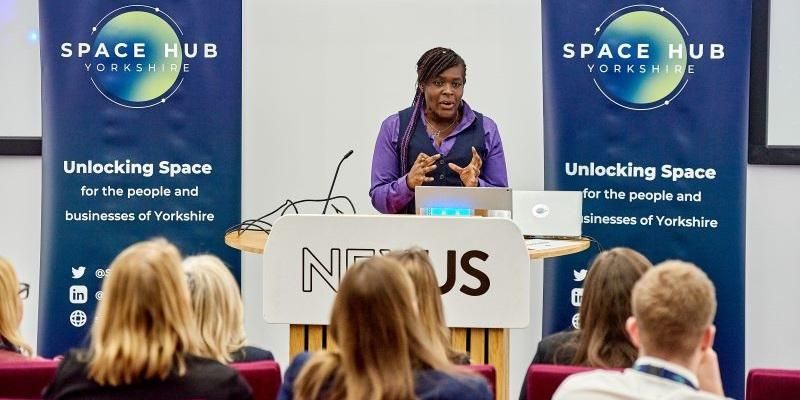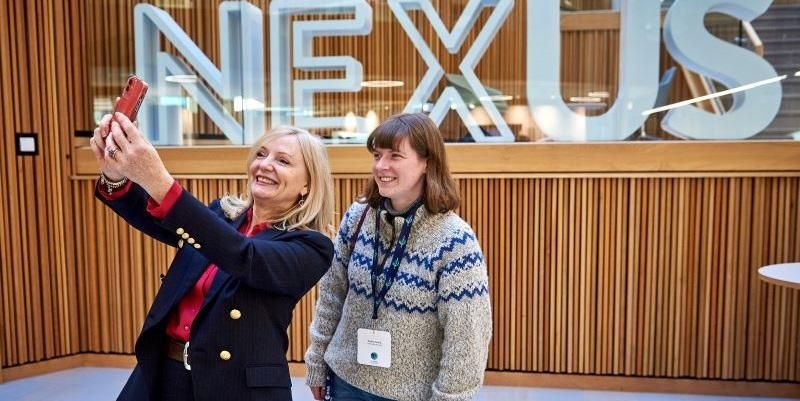
Science Minister Andrew Griffith says for the UK to become a Space superpower it must harness the talent of researchers and businesses involved in the analysis of satellite data.
Satellites orbiting the world are gathering increasing amounts of information - or geospatial intelligence - about the Earth and they play a critical role in monitoring the impact of climate change and natural disasters.
A major initiative to encourage the greater use of satellite data – particularly to improve decision-making around sustainability - has been announced by Space Hub Yorkshire, which is hosted at the University of Leeds.
Space Hub Yorkshire brings together industry, researchers, education institutions, and regional and local government. One of its aims is to help industry tap into the opportunities resulting from the £10 billion the Westminster government is investing in Space activities over the current decade.
Mr Griffith said: “For Britain to be a space superpower, we must harness the full potential of talent up and down our country and this exciting hub supports businesses in Yorkshire and the Humber to play a leading role in UK earth observation and geospatial intelligence.
“Satellite data is key to confronting global challenges like climate change and natural disasters, and in supporting domestic infrastructure like our roads and railways.
“Our investment will support pioneering Space activity that benefits our lives and can in turn generate millions of pounds to grow the region’s economy and level-up our country.”
The latest initiative at Space Hub Yorkshire involves the creation of the UK Earth Observation Network for Sustainability (UK-EONS), which will act as a catalyst for new products and services that use satellite data, and identify new markets.
UK-EONS was formally launched at a ceremony at the Nexus innovation and enterprise centre at the University of Leeds, with TV Space scientist Dame Maggie Aderin-Pocock invited to give an address.
Speaking ahead of her address, Dame Maggie said: “Data, in all its different shapes and forms, is changing our lives in so many ways. Satellite data is an underused resource. The more we make it accessible, the greater the impact it will have.
“Earth observation satellites are a real game changer in many things we do. From monitoring shipping across the planet to looking at the effects of climate change over long durations.
“They also play a vital role when climate-related disasters happen, providing vital intel to get help and resources to the people who need it most.”

Dame Maggie Aderin-Pocock at the University of Leeds
‘The legend that is Emily’
Tracy Brabin, Mayor of West Yorkshire, said: “This is a game changing opportunity for West Yorkshire, as we work to build a stronger, brighter region that works for all.
“We have leading capabilities that are vital for the space sector — and our companies and universities have made huge leaps forward in the global space race.
The Mayor paid tribute to the work of doctoral researcher Emily Dowd at the University of Leeds – who is part of the SENSE programme – whose research has demonstrated how satellite images were used to identify a major leak of the potent greenhouse gas methane from a gas pipe operated by a utility company.
Ms Brabin lauded her as the “legend that is Emily” because of her work in using satellite imagery to help tackle the climate emergency.

Mayor Tracy Brabin takes a selfie with doctoral researcher Emily Dowd.
Huge potential in satellite technology
Joining the board of UK-EONS is Phil Baldacchino-Steward, the commercial director at Compass Informatics which provides Earth observation services and analysis to governments and industry.
He sees a huge potential in the use of satellite data in a range of applications from looking at heat loss from buildings, urban planning, pinpointing areas of fly-tipping to providing information to farmers about the health of their crops.
Professor Anna Hogg, from the Institute for Atmospheric and Climate Science at Leeds and founder of Space Hub Yorkshire, said: “The creation of UK-EONS provides the UK with a fantastic opportunity to lead the world in monitoring our planet.
“Space data is also at the heart of the UK’s digital transformation.”
The initiative for UK-EONS came from the Satellite Applications Catapult, one of nine catapults established by Innovate UK to drive economic growth.
Nafeesa Dajda, Director for National Capability at the Satellite Applications Catapult, said: “With the launch of UK-EONS, we bring together space industry capabilities from around the UK and create opportunities for people to work together on Earth observation applications.”
Space Hub Yorkshire was founded three years ago to ensure Yorkshire benefits from the huge potential of the current Space race.
Further information
For more details, please use email to contact the press office at the the University of Leeds.
Top picture: Adobe image stock